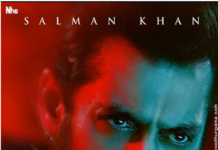Seventy words originating from Indian English have been added to the Oxford English Dictionary in this latest update. Most of the Indian words added pertain to relationships, culture and food
HYDERABAD: Anna,’ meaning elder brother in Tamil and Telugu, has finally found recognition in the Oxford English Dictionary (OED). In all, 70 new Indian words from Telugu, Urdu, Tamil, Hindi and Gujarati have been added to the dictionary in the latest update that happened a month ago.
So far, Anna exists in the dictionary as a noun, which means a former monetary unit of India and Pakistan, equal to one sixteenth of a rupee. Now, anna2 (also annan), noun, has been added. ‘Anna’ in Telugu and Tamil means an elder brother, often used as a respectful title or form of address.
`Abba’, Urdu word for father has also been added. Other words added in the latest edition of OED are Achcha, Bapu, Bada Din, Bachcha, Surya Namaskar (thanks to Yoga). Most of the Indian words added pertain to relationships, culture and food. In addition to Achha for okay that already exists, Achcha, an exclamation used to express an emotion of surprise, doubt and joy, is now in Oxford English Dictionary .
According to `Release notes: Indian English’ written by Danica Salazar, OED World English Editor, “Seventy words originating from Indian English have been added to the Oxford English Dictionary in this latest update, alongside the 900 or so words already existing in the OED.”
She writes, “Indian speech etiquette features a complex system of kinship terms and terms of address, in which age, gender, status, and family relationships are marked by a highly specific vocabulary with no direct equivalents in English.This lexical gap is filled by borrowing such words from Indian languages (abba, anna, bapu, chacha, didi, mata), or adapting existing English words (cousin brother, cousin sister).”
Source:TOI

Readers like you, make ESHADOOT work possible. We need your support to deliver quality and positive news about India and Indian diaspora - and to keep it open for everyone. Your support is essential to continue our efforts. Every contribution, however big or small, is so valuable for our future.












English language is an open laboratory.
One should remain open to changes, developments etc.
That is an improvement and a reflection of changing times. The first OED was published in about 1884.
Did you know that until about 1960, in the older Oxford dictionary editions the entry for Hindoo was a ‘thief , a beggar, a lowly person’? A few people such as the late Dr Bakshi from Southall, campaigned to remove that entry from the Oxford Dictionary, and it was eventually removed. The Empire equated a Hindoo to a ‘thief’!
I wonder why nobody so far suggested to the Editor of Exford English Dictionary that the Indian/Pakistani monetary word for one-sixteenth of a rupees is Aana or Ana; it should not have been spelt as Anna. If the world depicting monetary unit were originally spelt correctly, there would have been no need for an explanation. I wonder if there is any way out to give this suggestion a worthy thought.